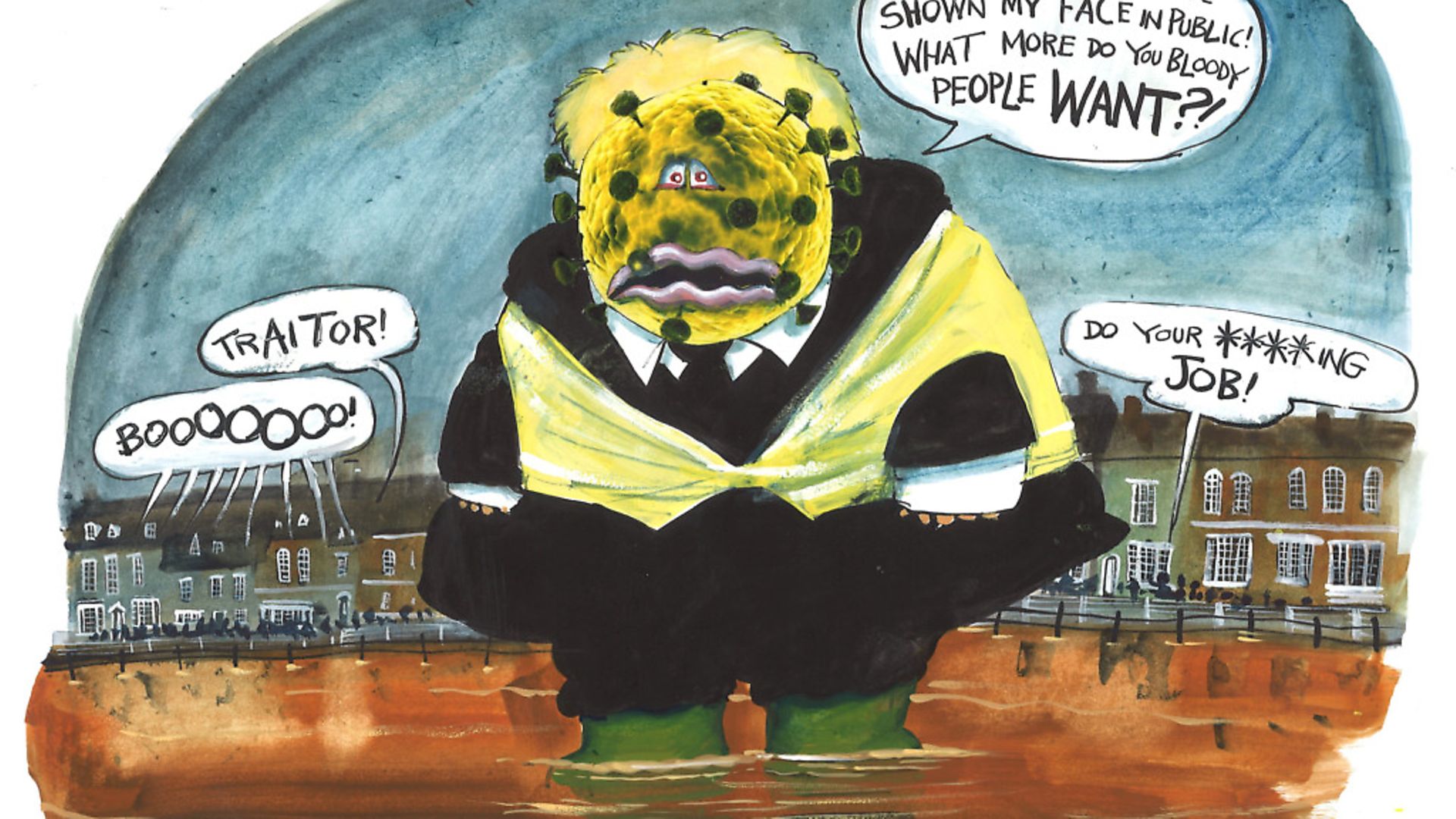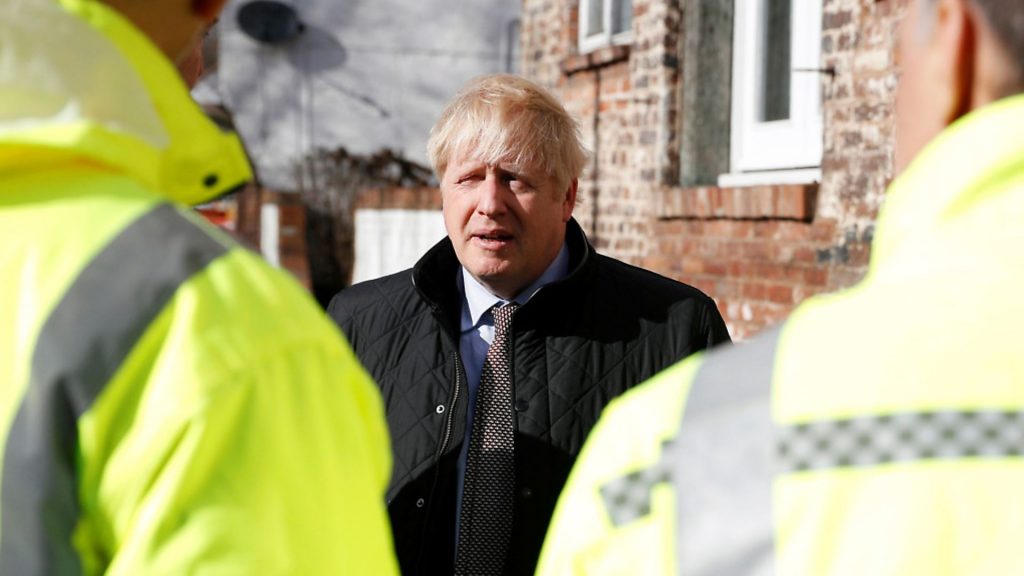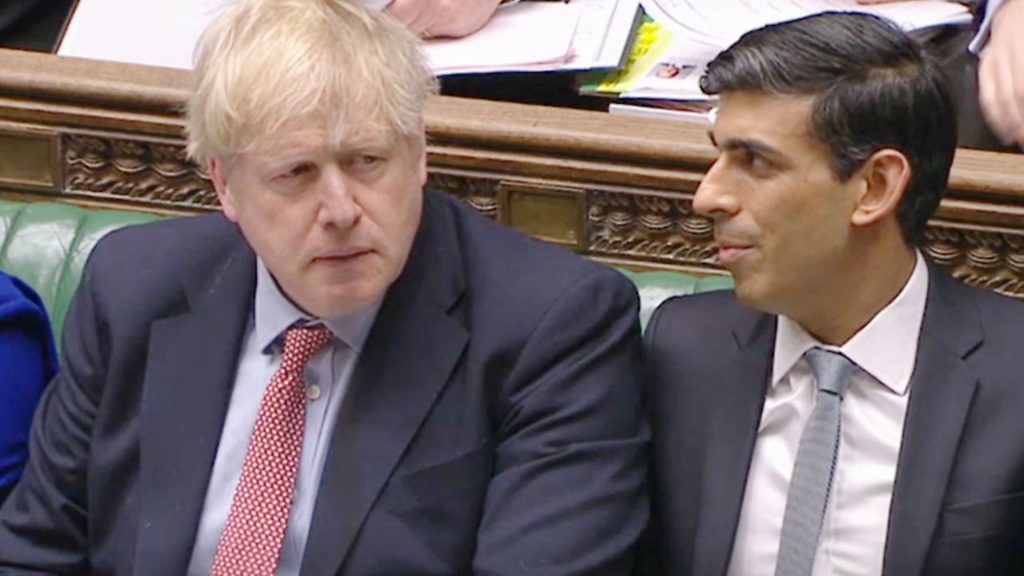
MICHAEL WHITE on the week the world woke up to potential coronavirus catastrophe.

One night this week I braved the rain and lurking Covid-19 epidemic to listen to two clever, old economists, John Kay and Mervyn King, explaining why they’ve just written a timely text book called Radical Uncertainty. What with Wuhan’s most famous export threatening us all in varying degrees and the Johnson government’s skittish approach to global trade deals doing the same from a different angle, it couldn’t have happened at a better moment. Budget week too.
Not that this dense 500-page doorstep is ever going to trouble the bestsellers list. But the crucial notion I took away from the session at Whitehall’s Institute for Government might be useful to you too. It’s the difference between risk and uncertainty. Risk is something that can reasonably be calculated because we have sufficient data and frequency distribution to apply mathematical analysis to it and come up with models and forecasts, things which are – new word alert – probabilistic.
We can see that approach at work when Boris Johnson pops up in the panelled dining room at No.10 flanked by his chief medical officer, professor Chris Whitty, the bald one, and Sir Patrick Vallance, his chief scientific adviser, the other one. At a time of deep public mistrust – fake health actively fomented on social media – the pair sound sober and authoritative. So the shifty rascal is lucky to have them. Experts are back, Govey!
Their return didn’t take long, did it? Real life can be like that. Now that he can no longer lie low, No-Jokes-Johnson looks ill at ease. But it’s early days and he may grow into the crisis. Even Phil Hammond, who has no reason to love Boris, predicts he ‘will rise to the occasion’. These challenges become a test of character and judgement, fortitude too. Johnson’s hero wrote of his ascent to power in the dark hour of 1940 that he felt his whole life had been a preparation for this moment – and slept very soundly.

So now we will learn what mettle Boris is really made of. Meanwhile he can lean on his experts. They know a lot about lots of things that most politicians don’t know. Their advice is backed by ‘black box models’ devised by clever colleagues and accompanying forecasts about the likely spread of the coronavirus, its speed, its likely timetable and its mortality rates among different age groups. Watch out, oldies!
What the boffins can’t do – John Kay, Mervyn King and their intellectual forbearers, including the great Maynard Keynes say they can’t – is predict radically uncertain events, let alone put a price on the risk to lives and the economy. It’s the difference between predicting the weather – vast amounts of data exist for that – and trying to predict where and when the next terrorist attack will take place. Actually, American elections analyst, Nate Silver, tried that when asked to predict the likelihood of another 9/11. Since there have only been two such attacks on Manhattan in the 25,000 days since 1945 he came up with one chance in 12,500. Thanks, Nate.
It’s the difference between a puzzle – something that may be hard, but has an answer – and a mystery – something which doesn’t – said Kay and King. The latter was governor of the Bank of England during the financial crash and pointed out how useless the brand new Basel II safety rules, for the amounts of capital banks must hold, had proved in real life when safe-as-houses Northern Rock crashed in 2007. Why? Because all the mortgage money the Rock had lent long-term was borrowed on the short-term market and their lenders suddenly wanted it back. Fine in theory, but poor judgement in practice.
Black box economic models full of statistical predictions for politicians to cherry-pick – like the ones ritually produced by chancellors outlining their budgets – are created by smart people who may be too inexperienced to feed in the right assumptions. One grim example Kay and King gave was the World Health Organisation’s (WHO) modelling on the likely spread of AIDS in southern Africa. It rested on a calculation of an average 100 sexual contacts a year. Or was until a wise, old greybeard gently inquired: ‘Would that be 100 contacts with one person or 100 with 100 different people?’
You take my point. The topical lesson is that you can predict a global pandemic – history is dotted with them and modern travel spreads disease faster – but not what sort, when or where it will break out. What you can do is to provide planning options about what you’d do when it happens, robust and resilient ones which will maximise public safety while minimising disruption and economic cost. Mathematical models are fine, but experience-based narratives are better. It applies to Brexit planning, to floods (‘once in 100 years,’ ho, ho) as much as to Covid-19.
Precautionary pandemic planning is what’s going on now in different countries, each in their own way and at varying stages. The global pioneer of Victorian public health, Britain, has four NHSs, but one central command and control model which is working well – so we are currently assured. After persecuting Dr Li Wenliang, the initial whistleblower (who died), China reacted slowly, then decisively, as only a high tech police state can. Beijing seems to have got on top of it. Seems, because facts are sometimes suppressed to prevent panic or hide failure. In Europe Italy’s health system turns out to be regionally based, the government in Rome’s power fragile and Italians famously individualistic, sceptical too. All the same, this week Rome belatedly imposed draconian restrictions, prompting the question: can a laidback regime enforce a nationwide shutdown? It acted just as Johnson decided, on ‘science-led’ advice, to stick with the containment phase rather than move to delay and mitigation stages; this despite a rapid growth in a UK infection rate that is following the established pattern abroad.
We mustn’t move too soon or take steps which might be counter-productive, the PM told reporters – to whom he seems to be talking again. We need to maintain public confidence, added medics. Stock markets tumbled (and recovered), output stalled.
But football and cinemas kept going, at least in Britain, at least for today. Commentators wondered aloud if the selfie generation has the discipline and social cohesion to cope with self-sacrifice and inconvenience – the ‘spirit of the Blitz’ as we used to say. Racegoers at Cheltenham wondered what the fuss is about…
Have your say
Send your letters for publication to The New European by emailing letters@theneweuropean.co.uk and pick up an edition each Thursday for more comment and analysis. Find your nearest stockist here or subscribe to a print or digital edition for just £13. You can also join our readers' Facebook group to keep the discussion and debate going with thousands of fellow pro-Europeans.
My hunch is that Brits will rally stoically and that this may provide a political breathing space in which to recover some degree of national civility, if not unity, after the discordant Brexit years. Cries of ‘traitor’ hurled at Johnson during his visit to flood-stricken Bewdley struck a discordant note for some, as they might not a month ago. As in 1982 during the weird three months of the Falklands crisis – from invasion to recapture – restraint became the prevailing mood, if not the universal one. But if the Iron Lady had lost her 8,000-mile gamble, she’d probably have been finished.
Fingers crossed that Britain gets the balance right. But John McDonnell, the emeritus shadow chancellor, caught the ambiguity of the occasion well when he said that now is no time to play party politics. He then proceeded to berate the government for 10 years of austerity which has left the NHS understaffed, social care in disorder and the wider welfare safety in poor shape. George Osborne made the opposite point when he blithely explained that harsh but necessary steps to restore the public finances after the bankers crash gave young Sunak the space to take the precautionary measures to protect families, the vulnerable and the economy in Wednesday’s budget.
All the signs in the lead-up to it were that, inevitably, the imperatives of Covid-19 and the uncertainties generated by it meant that the radical budget measures under discussion just a few weeks ago – ‘levelling up’ with huge investment in the north, a fairer tax system, incentives for enterprise – have mostly been put on hold until two other ‘fiscal events’ promised for later in the year. Boris budgets are like Boris buses, it seems. You wait over a year for one in 2019, then three come along in quick succession. A shame Sunak’s dad was a doctor, not a bus driver like Javid Sr.
So the crisis gives an inexperienced chancellor, in the job just a month, valuable time better to learn the pitfalls. If things still go wrong in unpredictable ways it will not be his, but Johnson’s fault for carelessly losing Javid, just as it will be down to the World King if Priti Patel has to go. This is his cabinet, his Brexit, his pandemic to get right or wrong. But this event is forcing us all to behave differently. It will change a lot about how we feel about things, globalisation included. A friend flying in from California this week reports that the usually crowded flight was half empty. So is Venice.
If the supply side shock to global output – all those goods that go unproduced – combines with lower demand – no holidays, jobs and income lost, no pub football while we self-isolate – the GDP loss could quickly become a recession, global or regional. Will that help or hinder Britain’s EU and US trade negotiations, talks which are suddenly out of the news? That’s a radical uncertainty. We just don’t know, nor does Michel Barnier. But a plague which does not respect national boundaries is a salutary reminder that ‘sovereignty’ must always be tempered by cooperation, that trust is better than bluster.
On the face of things Johnson and Dom the Disrupter are starting out from a slightly better place than Donald Trump. He has been disrupting alliances and trying to cut funding to international agencies – including the WHO – which inhibit his half-baked notions for Make America Great Again. Having initially shrugged off the coronavirus as fake news or a Democrat-inspired ‘hoax’, Trump then appointed vice president Mike Pence to manage the crisis, a Tea Party Indiana conservative and radio host with a long history of anti-science agitation, including a pro-smoking stance. In short, a Trump Mini-Me who is no threat to the boss.
If Trump lacks the temperament and style to become a unifying national leader in a crisis – he does – what does that mean for old Joe Biden’s prospects now that he has emerged unexpectedly – certainly to me – as the likely Democratic challenger? Team Sanders was quick to accuse him of being the pawn of the corporate establishment, which will resonate among activists, as keen as Corbynistas to ignore inconvenient facts. Bernie’s famous Brothers managed to outspend near-broke Biden by seven to one on Super Tuesday, yet most voters – conspicuously black ones – went for likeable Joe.
I’m not a fan, horrified at the thought of people even older than me being in charge. But in a crisis people seek stability and security – ‘Keep Calm and Carry On’ as the 1940 slogan put it – and look upon government with friendlier eyes. Perhaps it’s not the enemy after all. If Trump screws up he could lose, even to Joe, provided he picks a credible deputy (who might quickly get the top job). Remember how George Bush Jr was lucky: his mishandling of the New Orleans floods came after his re-election.
Johnson’s U-turn on public spending before the coronavirus crisis, as well as his cynically intelligent pragmatism, makes him better placed than Trump to adapt to changing circumstances. So does a competent bureaucracy (experts). His problem is character – insouciant, lazy, widely mistrusted. The parliamentary ombudsman is checking out who exactly paid for that dodgy Mustique holiday. But he’s lucky that Labour will be effectively leaderless until April when the crisis may have peaked.
Whether or not the World King succeeds in blunting the corona attack by then – or gives Keir Starmer’s likely leadership rocket boosters – is only part of the story, a shrinking one too. Reduced global output will give the planet a rare reprieve. Did you see the map of drastically reduced pollution in the air above Wuhan? Food for thought there, as there is over many of our self-indulgent habits. We are being reminded how much flying is unnecessary and how important it is to wash our hands more often than most of us do to avoid minor infections. The Grim Reaper stalks the land.
Governments, even Trump’s, and greedy corporations like Facebook, are being forced to take steps to curb fake health news – as they declined to do when it was only Russians and oligarchs corrupting our elections. Perhaps we even may become less suspicious of chlorinated American chicken now that we’ve been reminded how lethal unchlorinated Chinese poultry and other live animals can be when sold in Wuhan markets.
We don’t know because we don’t know how we will all respond to existential challenge, any more than we can be sure how less-existential Brexit will turn out. Or how long it will be before climate change renders most of our possessions uninsurable from the growing threat from fire or flood (answer: sooner than you realise). Back to radical uncertainty. In the aftermath of the Second World War Keynes and that intellectual cadre of economists lost their battle against American colleagues who decided that data analysis could quantify even unquantifiable uncertainty. That view ruled the roost until our own destabilised times. No longer. Over to you, Boris. You too, Rishi.









